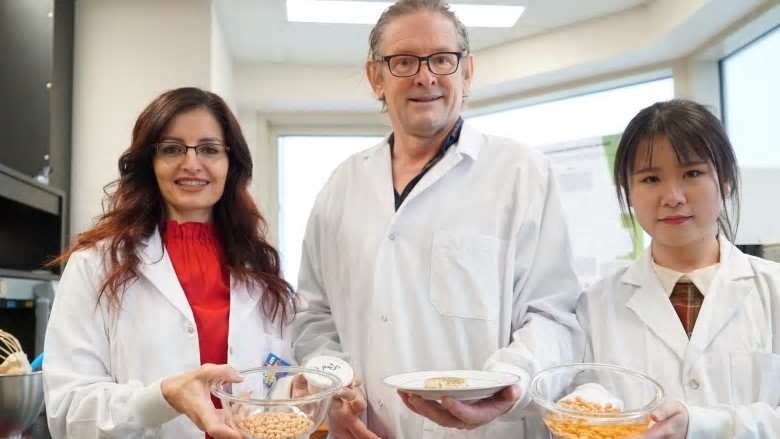
U of S researchers giving new purpose to vegan egg replacement aquafaba
USask researchers, including plant sciences professor, Martin Reaney (MSc'85, PhD'89), are taking the water that chickpeas are cooked in and stabilizing it for use as an egg replacement.
By Scott Larson | CBC NewsResearchers at the University of Saskatchewan have been busy in the lab, and kitchen, testing out a vegan egg replacement made from chickpea water, as reported by CBC News.
The viscous liquid derived from chickpeas is called aquafaba.
The rise of aquafaba is unconventional because it wasn't developed in a food lab, but rather by a French vegan food blogger a few years ago.
U of S plant sciences professor Martin Reaney (MSc'85, PhD'89) became interested in aquafaba when his daughter, who was working in a downtown restaurant, told him about an artificial ice cream they were making with the chickpea water.
"I was totally surprised that they could actually do this," Reaney said. "It's a really difficult thing to do."
The idea intrigued Reaney so much he had PhD biological engineering student Yue He research aquafaba as part of her Master's degree.
Its foaming qualities can be used as an egg replacement in things like sponge cake. It also has emulsion properties that can be used to produce products like mayonnaise, salad dressing, cheese and ice cream.
Reaney said the problem with aquafaba is its inconsistency, meaning you can't count on it to perform the same way each time in recipes.
He's research inludes working to find what chickpea works best and to create standardized aquafaba.
"It's very difficult to get it just right because not all chickpeas are the same," Reaney said. "And so that's where He has come in trying to standardize it."
Read more at https://www.cbc.ca/news/.

